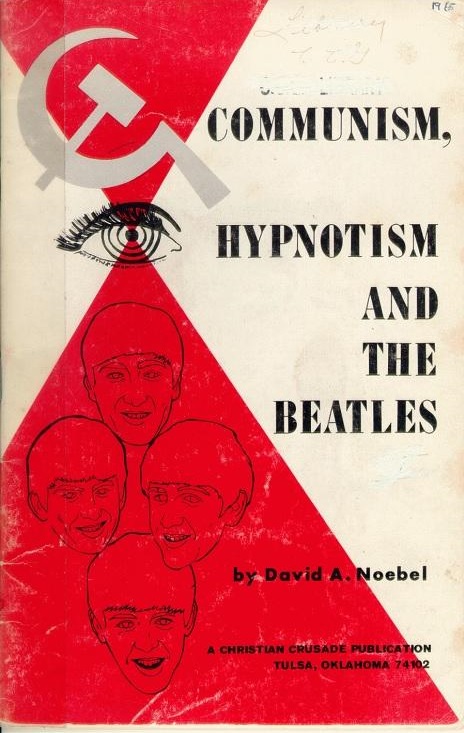Roots Of Leftism: The Enlightenment — And Before That?
We moderns face dual problems: the immediate political collapse of the West and the long term decline and collapse of Western civilization. To defeat these fatal pitfalls, we must understand where they come from so we can choose a different direction and not merely opposition to them.
The origins of our downfall in the immediate political collapse of the West prove easy to find: post-war Leftism, itself an outgrowth of the trendy 1930s socialism that occurred in response to the instability of society brought on by 1920s moral laxity and financial herd behavior.
But where did that come from? A blithe writer in American Pravda a.k.a. The New York Times reveals the roots of Leftism in The Enlightenment™ and hints at its derivation in turn:
The Enlightenment must never bow to the Inquisition.
Recognizing and even celebrating individual identity groups doesn’t make America weaker; it makes America stronger.
There you have it: The Enlightenment™ is the ultimate goal, and Leftists see it as both their inspiration and goal. And so what is this “enlightening” philosophy? Skipping over group graffiti blog Wikipedia and its derivates, we can find an answer through an established and vetted source, The Encyclopedia Britannica, which tells us that The Enlightenment™ very much resembles eternal Leftism:
Central to Enlightenment thought were the use and celebration of reason, the power by which humans understand the universe and improve their own condition. The goals of rational humanity were considered to be knowledge, freedom, and happiness.
This requires a bit of distillation to see what is actually intended, since all humans express a dichotomy between public (social) and private (self-interested) views. In the above we have five assumptions:
- Reason. It is assumed that reason, in itself is good, forgetting that despite some areas of life being understandable a priori, many require experience or repeated contact over time to understand their complexity, and that people learn unequally because of different biological capacities for perceiving, remembering and understanding these correlated details. Reason without a parallel referent in reality itself is solipsism, or at least can be, and theory often does not correlate to reality because the theory is based on human assumptions which can be rationalized or forced to be understood through reason, and thus assumed to be reasonable, and does not have a referent in external reality.
- Equality. This derives from the idea that all humans have (equal) reason, which is required to consider reason a universal good. Implicit in this is pacifism, or the idea that other people are reasonable, or respond to reason instead of bodily impulses, personality-supporting pathologies, over-intellectualized neurosis and a desire for personal wealth and power.
- Knowledge Knowledge, and not wisdom or intellectual ability, is presumed to be what makes people smart. Take anyone, “give” that person enough education, and then he has knowledge, which replaces a need to have the innate biological and genetic ability to understand that knowledge, and more importantly, to apply it in such a way that it advances principle, civilization and individual.
- Freedom Instead of having goals, we should have an anti-goal of having no goals whatsoever. That way, these equal people can use their reason and knowledge to do… well, probably the same stuff their ancestors did, which for 99% of them means the “four Fs” — foraging, fighting, fleeing and reproduction — with complete blithe oblivion to any consequences of their actions beyond immediate inconvenience or convenience to self.
- Happiness Where previous societies looked toward sanity and realistic adaptation as their goals, we will instead pick an easier target: being happy. What makes someone happy? No one knows: it varies between individuals, and we do not want to admit this, but seems to rely heavily on the group, because people need context for the feeling that the way they are living is the best possible way they could live, and need a stable, functional and upward-driven society in order to live in pleasant surroundings, which have much more to do with their happiness than any navel-gazing or politics.
From these, the basis of our modern society is formed. We know how well that turns out, and we have seen similar types of mental structure in the past, such as in ancient Athens and Rome. But where did the impetus for The Enlightenment,™ which looks like a formalization of a long-building social/cultural shift or civilization decline, come from?
The original article gives us a clue:
If my difference frightens you, you have a problem, not me.
Ah, yes: forced acceptance. Equal inclusion is the motivation behind The Enlightenment™ and Leftism/liberalism alike. Its root is in a pathology of people who fear they do not belong in a group, namely that they want to force themselves to be included, at which point they can continue their non-contributory or parasitic behaviors and other people are forced to accept those as normal whilst paying for them through contributions to the collective, or socialized cost matrix to which expenses of dysfunction are externalized.
The origin of the paradox can be found here. Individualists, who want to force others to accept them but not to change their own behaviors, demand equal inclusion on the basis of collectivism, or the idea that everyone is important, solely for the reason that they want personal inclusion. The whole thing is a con job, from start to finish. Never trust a Leftist; they always lie.
Tags: crowdism, individualism, leftism, the enlightenment










